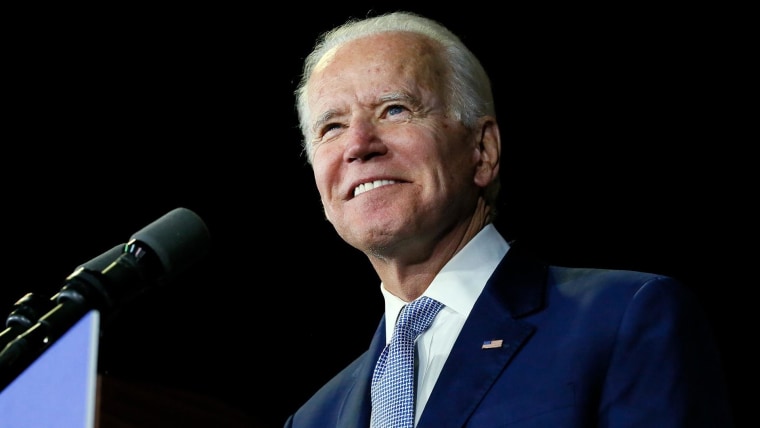Joe Biden’s delegate lead over Bernie Sanders increased Thursday after a majority of Texas’ pledged delegates were allocated from the party’s primary this week.
Biden won Texas — which, with 228 pledged delegates, was the second-largest Super Tuesday prize — netting 34.5 percent of the vote, compared to 29.9 percent for Sanders. Mike Bloomberg, who dropped out of the race on Wednesday, got 14.4 percent.
As a result, according to NBC News, Biden has been awarded 94 delegates in Texas, as of Thursday morning. Sanders has netted 78 in the state, and Bloomberg has been awarded four. Elizabeth Warren, who dropped out of the race Thursday morning, got three.
Only 49 delegates in Texas are still to be awarded.
Let our news meet your inbox. The news and stories that matters, delivered weekday mornings.
The latest allocation in Texas increases Biden’s lead in the overall delegate count. As of Thursday morning, Biden had 565 pledged delegates, compared to 506 for Sanders, according to NBC News.
In addition to his surprise victory in Texas on Tuesday, Biden won nine other states, according to NBC News projections. The biggest prize of the night, however, California, remained unclaimed.
The total delegate haul from Super Tuesday has yet to be completely determined because many states have yet to fully report their results — including California, where 415 delegates are at stake, and where Sanders is leading the popular vote 34 percent to 25 percent, with 57 percent of the state counted. NBC News has not yet projected in California.
California is known to be slow to count its ballots, but, as of Wednesday night, NBC News had allocated 161 of its delegates to Sanders, and 100 to Biden. Warren had received three.
On Super Tuesday, Biden won more states and by wider margins than many observers had expected, easily making up his delegate deficit coming out of the first four early contests. His showing puts him in position to potentially win the 1,991 delegates needed to secure an outright majority and clinch the Democratic presidential nomination.
In addition to Texas, he prevailed in the Virginia, North Carolina, Alabama, Tennessee, Oklahoma, Arkansas, Minnesota and Massachusetts Democratic primaries, according to NBC News projections, sweeping the South with his strength among black voters and making an inroad in the upper Midwest after a key endorsement from Minnesota Sen. Amy Klobuchar. He was also the apparent winner in the Maine Democratic primary, according to NBC News.
Sanders, meanwhile, won his home state of Vermont, and Colorado and Utah.
The goal of the Democratic presidential primary is to amass delegates to capture the nomination, not popular votes, and winning states does not necessarily mean a candidate will win the most delegates. Candidates need to cross a 15 percent threshold to win any delegates, which are awarded both at the statewide level and usually by congressional district.













